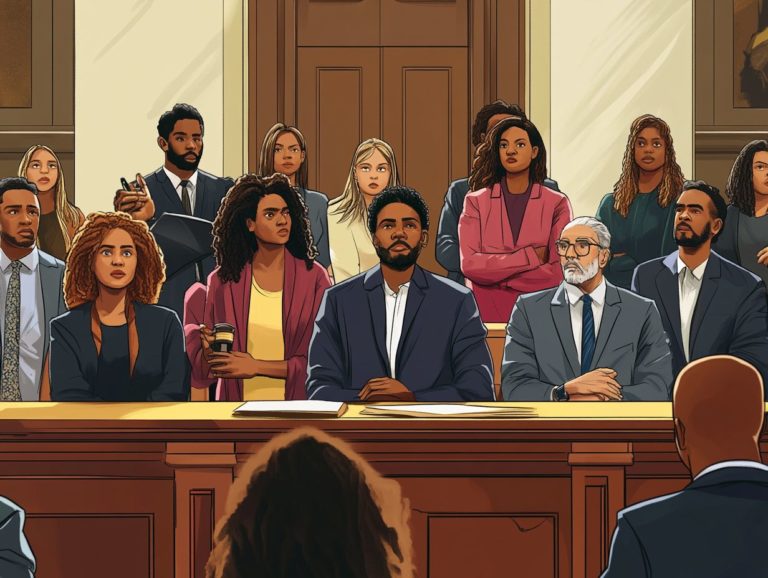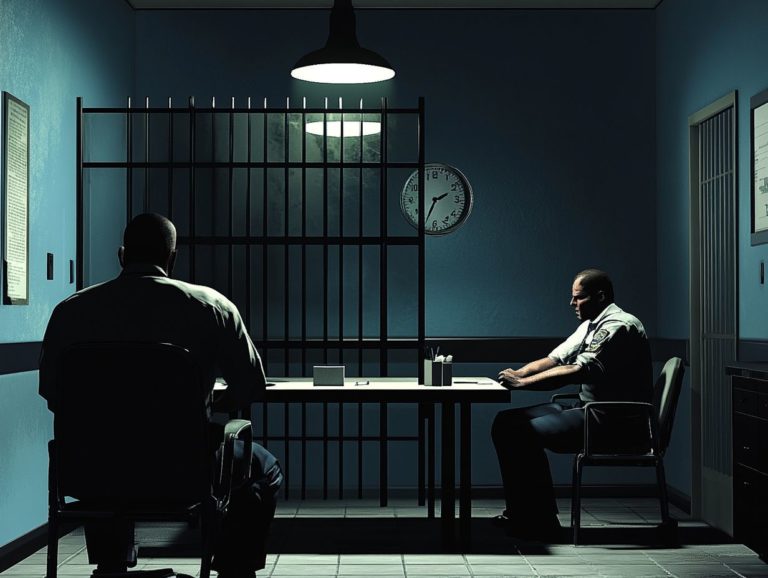Your Rights During Pre-Trial Detention
Pre-trial detention can feel overwhelming, often enveloped in a fog of uncertainty and confusion regarding your rights.
Understanding pre-trial detention the time spent in custody before your trial starts is crucial as it lays the groundwork for knowing the rights available to you in this situation. This includes the right to legal representation and a fair trial foundations of a just legal process.
However, challenges may arise, making it difficult for you to assert these rights effectively. This guide will equip you with the essentials of pre-trial detention, illuminate your rights, and provide practical steps to advocate for them.
Let’s explore the important rights you have during pre-trial detention!
Contents
- Key Takeaways:
- Understanding Pre-Trial Detention
- Rights of Individuals in Pre-Trial Detention
- Challenges and Limitations in Exercising Rights
- Advocating for Your Rights During Pre-Trial Detention
- Frequently Asked Questions
- Can I be held in jail before trial indefinitely?
- What happens if I am found not guilty after jail before trial?
Key Takeaways:
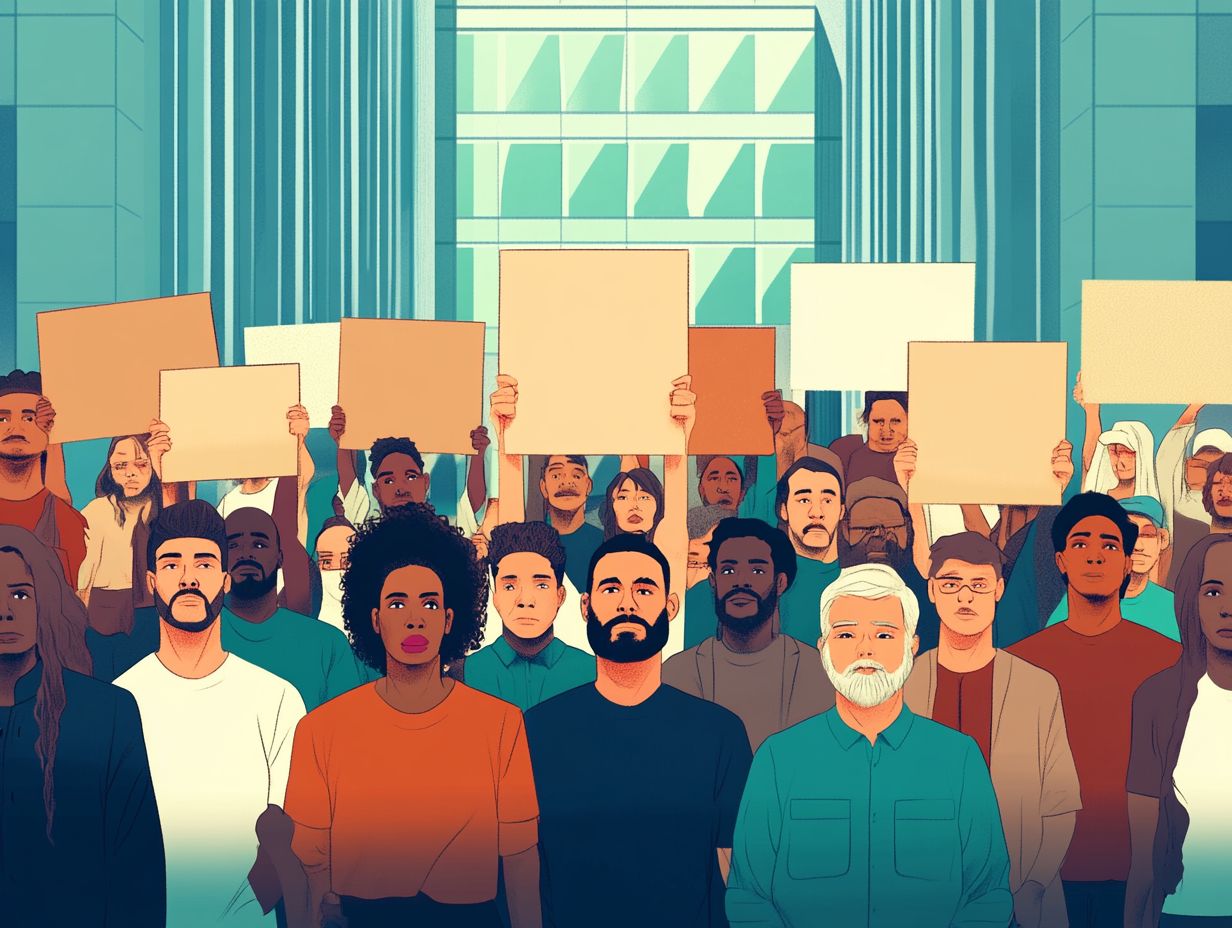
Pre-trial detention is the period of time between arrest and trial, during which an individual’s rights are protected by law. Individuals have the right to legal representation, a fair and speedy trial, and to be informed of the charges against them during pre-trial detention. Challenges such as obstacles to legal representation and delays in the process can hinder the exercise of these rights, but steps can be taken to advocate for them.
Understanding Pre-Trial Detention
Pre-trial detention significantly influences legal outcomes and shapes societal perceptions. The complexities surrounding this issue raise important concerns regarding the treatment of those held, including the risks of flight and potential overcrowding in prisons.
In numerous EU Member States, judicial reform initiatives are actively underway, highlighting the necessity for balanced approaches that honor legal standards while also safeguarding public safety.
Definition and Purpose
Pre-trial detention, commonly known as holding or remand, is a legal process in which you may find yourself held in custody while awaiting trial. This decision hinges on various factors, including the severity of the charges against you and the perceived risk of flight.
This holding exists within a framework designed to balance your rights as the accused with the broader interests of justice. While legal provisions differ by jurisdiction, certain criteria for remand are frequently considered:
- The potential danger you might pose to the community,
- The seriousness of the alleged offense,
- Whether there is a significant likelihood that you will fail to appear at future court dates.
Decisions regarding your remand can be swayed by factors such as your previous criminal history, your connections to the community, and the availability of alternatives to incarceration, such as bail options. Understanding these elements is vital, as they directly affect your rights during a period when your guilt or innocence has yet to be established.
Rights of Individuals in Pre-Trial Detention
You possess a range of fundamental rights while in pre-trial detention, rights that are essential for ensuring fair treatment within the criminal justice system. These include:
- The right to legal representation,
- The right to a fair and speedy trial,
- The right to be informed of the charges brought against you.
Right to Legal Representation
The right to legal representation is a cornerstone of a fair trial, ensuring that you, as an individual in pre-trial detention, have access to legal assistance to navigate the complexities of the criminal justice system. This crucial access not only safeguards your rights but also helps level the playing field.
Without adequate legal support, the risks of wrongful convictions or excessive sentencing loom large. Certain demographics often face systemic discrimination, which only amplifies the negative effects of insufficient legal counsel.
Organizations like Fair Trials are dedicated to addressing these issues by advocating for fair legal practices. They emphasize the profound need for comprehensive legal representation, ensuring that everyone, regardless of their background, has the means to defend themselves effectively.
If you find yourself in pre-trial detention, it is crucial to seek legal advice immediately to navigate your rights effectively.
Right to a Fair and Speedy Trial
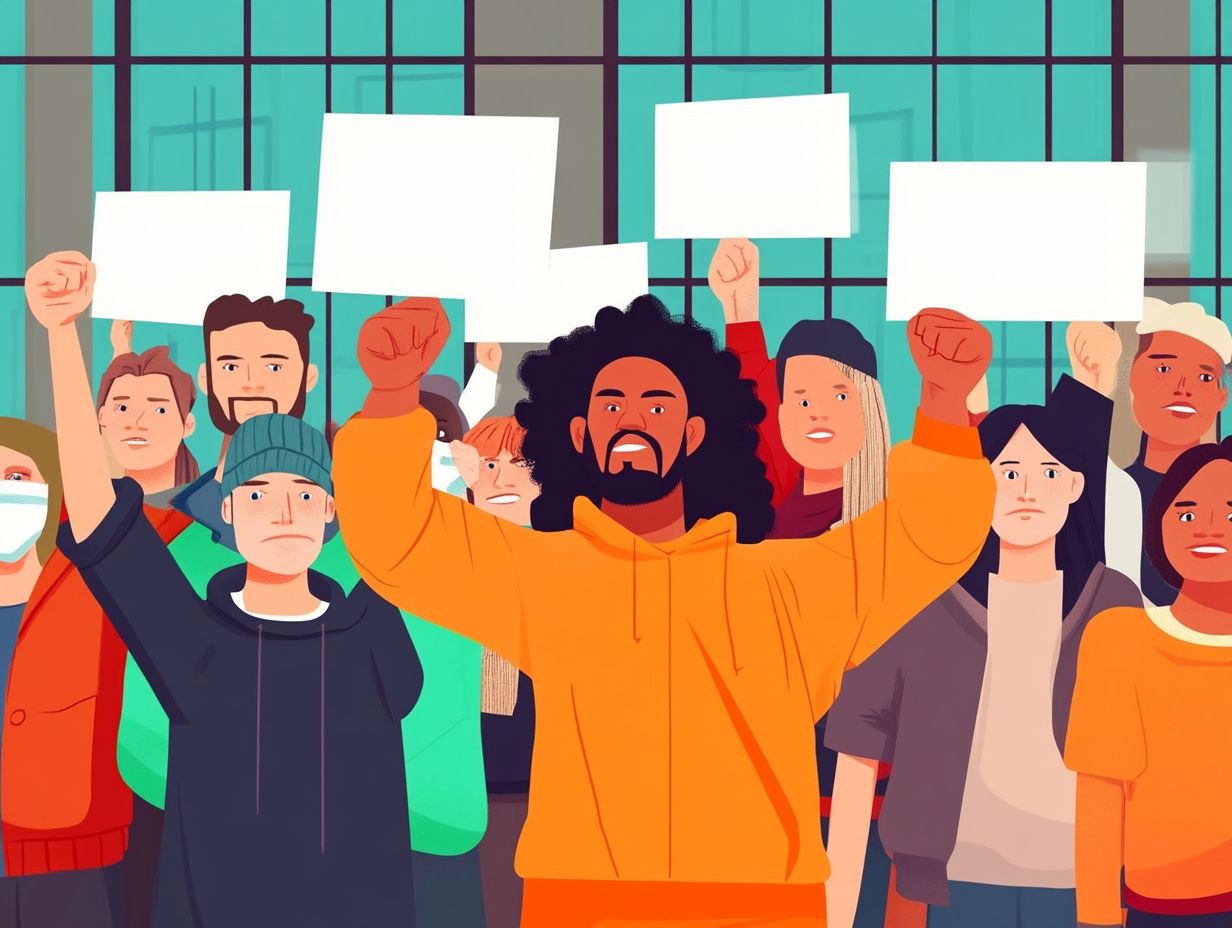
The right to a fair and speedy trial is crucial in preventing prolonged detention before trial. It safeguards your fundamental rights and ensures that justice is served without unnecessary delays.
Timeliness in legal proceedings is vital. It alleviates the stress and uncertainty you may face while detained. It also preserves the integrity of the judicial system. Delays can intensify feelings of anxiety and isolation, significantly affecting your mental health and hindering your ability to prepare an effective defense.
Across various EU Member States, ongoing judicial reforms aim to reduce these delays and reinforce your right to a swift trial. These reforms seek to create clearer timelines and accountability measures, ensuring that the judicial process is both efficient and equitable. This ultimately bolsters the trust you and other citizens place in the legal system.
Right to be Informed of Charges
The right to be informed of the charges against you is a fundamental legal privilege, especially for individuals being held before trial. This ensures transparency and provides you with the opportunity to prepare an adequate defense.
This right is essential for justice it empowers you to understand the nature of the accusations you face. By knowing the charges, you can effectively devise a strategy to challenge your detention, enhancing your ability to pursue a fair trial.
Being well-informed promotes accountability within the legal system. It helps prevent arbitrary or unjust detentions without proper grounds. This right also serves as a safeguard against wrongful convictions, fostering a more equitable process for everyone involved.
When equipped with knowledge of the charges, you can navigate the complexities of the judicial system with greater confidence and clarity.
Right to Medical Care
Individuals in pre-trial detention have the right to access adequate medical care, a vital component for maintaining their health and well-being while in custody. However, the reality in many facilities often falls short of this ideal.
Overcrowded prisons frequently restrict access to healthcare providers, making it difficult for those detained to obtain timely treatment for chronic and acute health issues. Inadequate sanitation and limited resources can exacerbate existing health problems, leading to a rapid decline in physical and mental well-being.
These systemic issues raise significant ethical concerns about the provision of healthcare in detention settings, calling into question the adequacy of support offered to this vulnerable population.
Challenges and Limitations in Exercising Rights
Despite the recognized rights of individuals in pre-trial detention, you face numerous challenges that hinder your ability to exercise these rights effectively.
These obstacles often include difficulties accessing legal representation and frustrating delays in the pre-trial process.
Obstacles to Accessing Legal Representation
Obstacles to accessing legal representation for individuals being held before trial often arise from socio-economic factors, including a lack of financial resources and limited availability of legal aid. These barriers create a striking disparity in the justice system.
Those with financial means can secure qualified attorneys, while others, particularly from marginalized communities, may find themselves navigating the complex legal landscape alone. The financial burden of hiring a private attorney can be daunting, compelling individuals to settle for inadequate representation or, in some cases, none at all.
Systemic issues, such as overcrowded public defender offices and a lack of awareness regarding available resources, only serve to intensify these challenges. This ultimately leads to unfair trial outcomes and prolonged detention, disproportionately impacting vulnerable populations.
Delays in the Pre-Trial Process
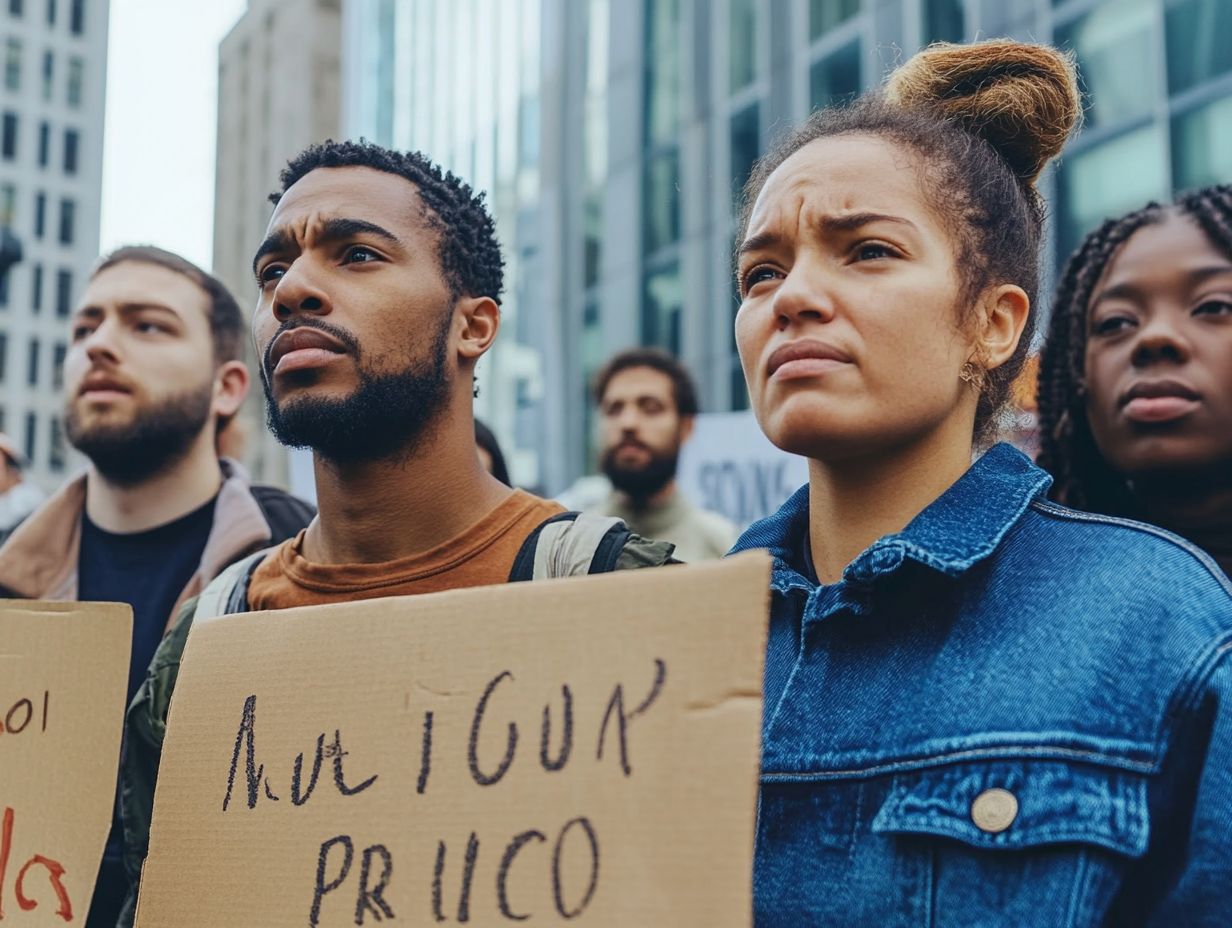
Delays in the pre-trial process can take a serious toll on your mental health and the overall effectiveness of the justice system. They contribute to problems like overcrowding in detention facilities.
These hold-ups often stem from a variety of factors, such as insufficient resources, overwhelming caseloads for public defenders, and slow government processes.
You might find yourself waiting for trial much longer than anticipated. This extended wait can amplify your anxiety and feelings of hopelessness.
It can also hinder your ability to prepare a robust defense. This situation undermines public confidence in the justice system, leading to dire consequences like wrongful convictions or unnecessarily long incarcerations.
The ripple effects reach further. They place additional stress on the legal system and impact communities both economically and socially, underscoring the urgent need for reform.
Advocating for Your Rights During Pre-Trial Detention
Advocating for your rights during pre-trial detention is crucial for securing fair treatment within the criminal justice system. It enables you to pursue the legal assistance and support you need, ensuring that your voice is heard and your rights are protected.
Steps to Take in Protecting Your Rights
To effectively safeguard your rights during pre-trial detention, it s essential to be aware of your legal options. Take advantage of the pre-trial services available to provide crucial support.
These services often include help from a lawyer, guiding you through the complexities of your situation. Seeking legal representation early on is vital; experienced attorneys can decipher legal documents and ensure that your rights are upheld.
Understanding the implications of each step in the process is paramount. Don t hesitate to ask questions or seek clarifications.
You can also reach out to local organizations that can help you understand your rights. They provide support and guidance every step of the way.
Resources for Support
A wealth of resources and support organizations, like Fair Trials, stands ready to assist you in navigating the complexities of pre-trial detention and ensuring your rights are upheld.
These organizations provide legal aid services and connect you with advocacy groups that offer emotional support and guidance throughout your journey. For example, the American Civil Liberties Union (ACLU) and the National Immigration Project are invaluable allies, offering critical resources and guidance for those facing detention.
Informational websites such as the Prison Policy Initiative provide valuable insights into the legal landscape, enabling you with knowledge about your rights and options.
By tapping into these resources, you can gain a clearer understanding of your situation and advocate for yourself. This fosters a sense of empowerment and hope even in the most challenging environments.
Frequently Asked Questions
What is pre-trial detention?
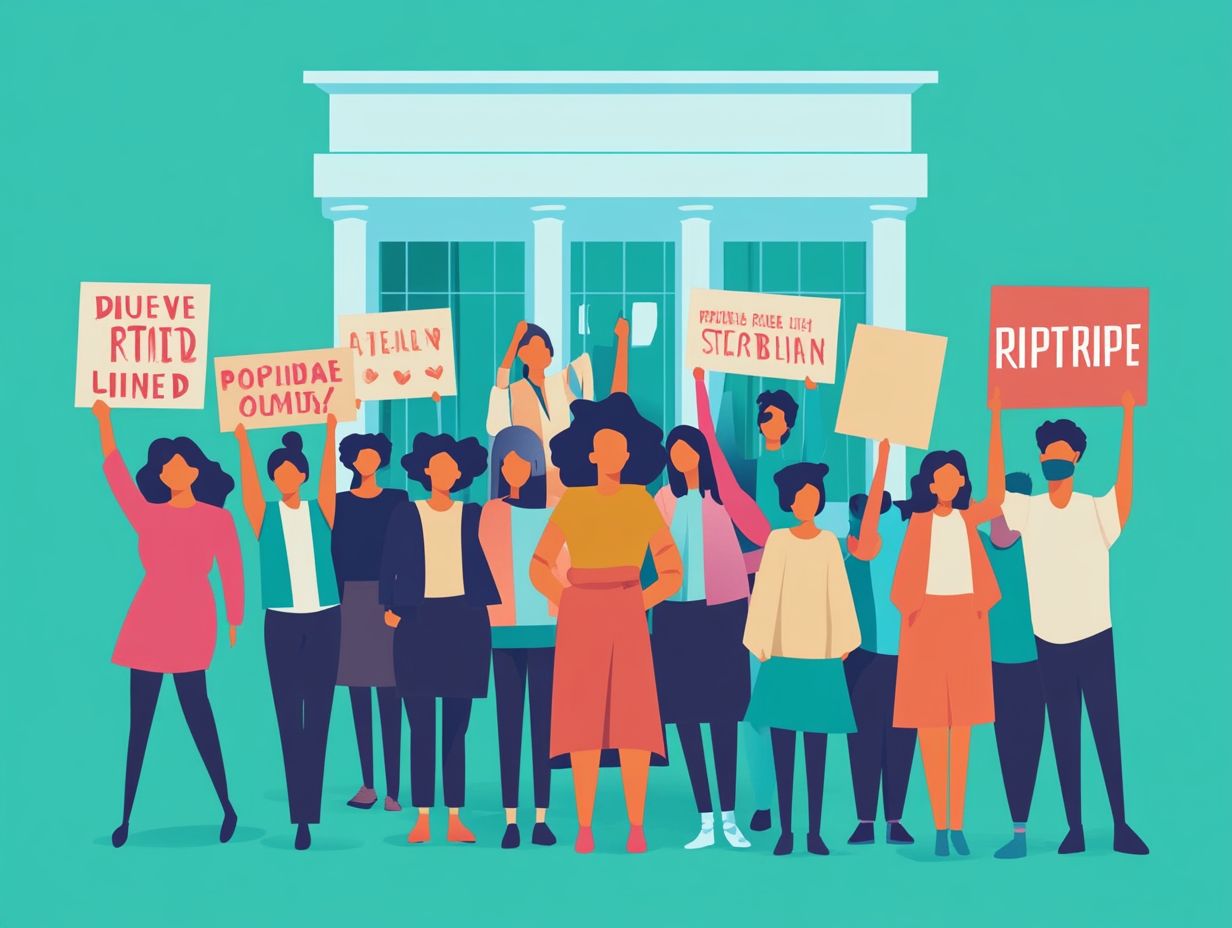
Pre-trial detention is the period when a person is held in custody before their trial. It occurs after a person has been arrested and before they have been found guilty or innocent.
What are my rights during pre-trial detention?
You have the right to be informed of the charges against you, to contact an attorney, and to remain silent. You also have the right to a fair and speedy trial, as well as the right to be treated humanely and with dignity.
Can I contact my family or friends while in pre-trial detention?
Yes, you have the right to make phone calls and send letters to your family and friends while in pre-trial detention. However, these communications may be monitored by the authorities.
Do I have the right to a lawyer during pre-trial detention?
Yes, you have the right to consult with an attorney and have them present during any questioning by the authorities. If you cannot afford a lawyer, one will be appointed to you.
If you’re unsure about your rights, don’t hesitate to reach out for assistance today!
Can I be held in jail before trial indefinitely?
No, you have the right to a speedy trial. This means you cannot be held in jail before trial for an unreasonable amount of time.
What happens if I am found not guilty after jail before trial?
If you are found not guilty, you will be released from jail. You may also be able to claim compensation for the time spent in custody.
To learn more about your rights in the legal system, consider reaching out to a legal expert.

